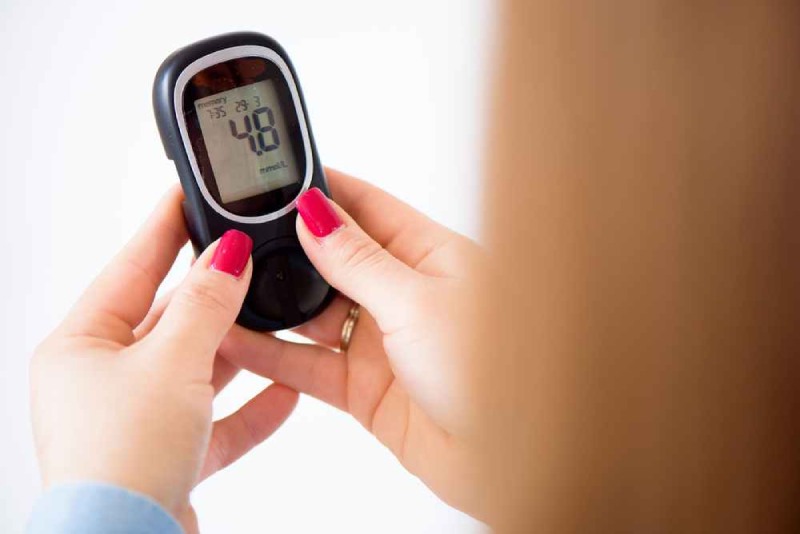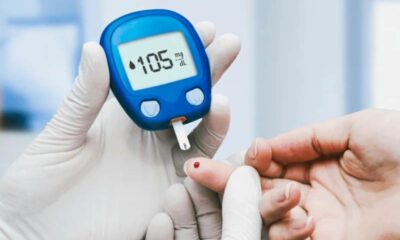Do you know that the way you sleep affects how much blood sugar you have? Getting a good night’s sleep is essential for diabetics to maintain appropriate glycemic control. On the other hand, poor sleep habits are frequently brought on by modern lifestyles, and this can negatively impact blood sugar levels. Because social media is so widely used and there are so many streaming services with a never-ending supply of information, people are watching television late into the night, which is bad for their sleep. Our specialists, who we spoke with, elucidated the effect sleep has on blood sugar levels.
Sleep’s Effect on Blood Sugar
Outlined the following effects of sleep on blood sugar levels:
Levels of Cortisol
Increased levels of cortisol, a stress hormone linked to insulin resistance, are the outcome of inadequate sleep. According to Dr. Tickoo, this resistance can worsen glycemic control in people who already have diabetes or increase the risk of acquiring prediabetes or diabetes.
According to Cureus, sleep loss, especially when it persists over time, reduces insulin sensitivity. Type 2 diabetes is thought to be a result of the body’s cells becoming less sensitive to insulin, which raises blood sugar levels.
Stress via Oxidation
Oxidative stress and inflammatory indicators are heightened when sleep deprivation persists. This raises the chance of getting diabetes and increases insulin resistance. As a result of these hormonal changes, blood sugar levels are raised.
Nutritional Practices
Staying up late at night can lead to consuming more calories, frequently from unhealthy foods, which can result in weight gain and obesity, both of which raise blood sugar levels.
Exercise
Poor sleep quality can cause decreased energy and greater tiredness during the day, which can decrease physical activity and exacerbate blood sugar spikes and weight gain.
Health Issues
“Certain medical conditions, such as obstructive sleep aponea, involve the collapse of the airway during sleep, often accompanied by snoring. These interruptions in the sleep cycle result in poor sleep quality and daytime drowsiness. Also, obstructive sleep apnoea is linked to obesity, diabetes, and cardiovascular issues”, added Dr Tickoo.
A 2009 study revealed that 86% of participants with a diagnosis of diabetes also had sleep apnea. Fifty-five percent of this group had severity levels that needed to be treated.
Diabetes, Obesity, and Sleep
Obesity, diabetes, and sleep difficulties are likely related and create a vicious cycle. Excessive or inadequate sleep is linked to poor blood sugar regulation and a higher chance of getting diabetes.
Individuals who are diagnosed with diabetes frequently have abnormal sleep patterns or a higher than average prevalence of sleep problems. It is well known that obesity increases the risk of sleep apnea and that diabetes and obesity are related.
It is yet unknown, nevertheless, exactly which pathophysiological processes underlie the connection between irregular sleep patterns and poor diabetes management. Additionally, individuals receiving diabetic treatment—especially those on insulin therapy—may experience sleep problems due to episodes of hypoglycemia. Additionally, those who have poor quality sleep frequently show signs of fatigue, decreased tolerance to exercise, and trouble controlling their blood sugar levels.
In Summary
Individuals with poor sleep quality are more likely to develop diabetes, and those with diabetes already may have elevated blood sugar levels as a result of poor sleep. For a healthy body, it is therefore crucial to get a good night’s sleep as well as a good length of sleep each day.

 Diabetology1 week ago
Diabetology1 week ago
 Diabetology1 week ago
Diabetology1 week ago
 Diabetology7 days ago
Diabetology7 days ago
 Diabetology5 days ago
Diabetology5 days ago
 Diabetology1 week ago
Diabetology1 week ago
 Diabetology5 days ago
Diabetology5 days ago
 Diabetology3 days ago
Diabetology3 days ago
 Diabetology3 days ago
Diabetology3 days ago
















